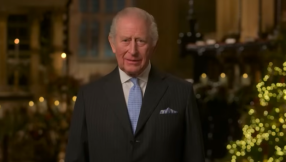While the recent tragic events in Charlottesville, Virginia have set off a domino effect of violent protest and counterprotest in America, in India, supremacism has long been sparking violence.
The shocking murder yesterday of Gauri Lankesh, 55, the editor and publisher of the Kannada-language 'Gauri Lankesh Patrike' newspaper and a prominent advocate of secularism, illustrates further the dangers.
In Uttar Pradesh alone, more than 12,000 incidents of communalism – involving everything from land disputes, to desecration of religious sites and confrontations over mixed marriages – have been reported since 2010. Most famous among them are this summer's deadly clashes between Thakurs and Dalits in Saharanpur district, which resulted in multiple deaths and extensive damage to property.
Dalits, sometimes called 'untouchables', have suffered discrimination for millennia by upper caste groups such as the Thakur. From being denied entrance to temples, to being forced to eat and prepare food separately and to clean human excreta and skin cattle, Dalits suffer a form of discrimination unparalleled throughout the world. They're the constant target of physical and sexual violence, and at times their plight has driven them to commit suicide. Caste supremacism across faiths continues to rear its ugly head, even after 70 years of Indian independence.
Now Dalits have begun to protest and mobilize en masse. Some have even rallied around a group called the 'Bhim Army', named after the famous Dalit leader Bhimrao Ambedkar. Bhim Army was involved in the clashes in Saharanpur, and its leader, Chandrashekhar Azad, is currently under arrest.
Though we might be 7,500 miles apart, Indians and Americans are both facing a similar problem.
Whether it's in the streets of Charlottesville, Virginia or of Saharanpur, Uttar Pradesh, centuries of unresolved bitterness are coming to a head in violent clashes. And if our public leaders cave in to the game of identity politics, manipulating people's hurts and emotions, more violence is bound to come. Supremacism – whether based on race, caste or religion – will tear us apart.
The French philosopher and thinker Rene Girard uses the 'scapegoat mechanism' to describe how societies often try to solve social conflict. Girard argues that, when societies sense that serious cultural disruption is about to take place, tensions build and communities seek resolution through violence. Usually an individual or community 'scapegoat' is chosen, and society unleashes violence upon this victim. For a time, this violent outburst has the effect of diffusing tensions, allowing societies to experience a form of cathartic relief. Yet the root causes of the conflict and the faultlines within the culture are never fully addressed. The cycle of unrest and violence is perpetuated.
The general principle of Girard's philosophy can be observed in the turbulent times India and America are experiencing. Violence, both physical and rhetorical, has become the default response to our pent-up frustration and anger — even a U.S. senator, following the Charlottesville controversy, said she hoped for President Trump's assassination (she has since retracted). Yet violence has gotten us nowhere closer to solving our differences or bridging our divides; it has only exacerbated the conflict and further polarized our nations.
I'm no stranger to discrimination and intolerance. I'm an Anglican bishop in a country where Christianity constitutes barely 2 percent of the population. I've seen my fair share of violence in my lifetime: the murder of Australian missionary Graham Staines and his two sons who were burned alive in their car; the notorious 2007 mob violence against tribal and Dalit Christians in Kandhamal, Odisha; and the constant and historical persecution of Sikhs, Muslims and Hindu Kashmiri Pandits.
As a faith leader and a human being, I cannot sit idly by as violence is unleashed against my neighbor, regardless of his faith.
Still, I acknowledge Girard's proposition: violence — either by the oppressed or the oppressor — has never solved the deeply ingrained issues at the heart of our conflicts. There must be a better path toward peace.
Anyone who says Jesus was apolitical has not read his Bible right; you don't execute a commoner in the 1st century Roman Empire unless he's a threat to the established cultural order. Through his teachings, Jesus was subtly upending long-held social conventions, exalting women's position in society, welcoming the outcast and those deemed "untouchable" and gathering around himself a group of devoted followers. No ruler — political or religious — would have seen what he was doing and heard what he was saying and not think he was mounting some form of revolution.
Yet what they misjudged — and what some Christian leaders today miss, too — is the way Jesus was mounting his revolution. Instead of seeking power, he taught his followers to be meek. Instead of retaliating against aggressors, he ordered them to "turn the other cheek." The authorities were right to think he was growing in influence and creating a movement, but they failed to see he was raising an army of peacemakers, who would change the world by the power of love not the power of might.
America and India need these kind of peacemakers — leaders like Martin Luther King Jr. and Mahatma Gandhi — to rise up and lead during these critical times. We need men and women who understand that true change happens in the heart and that violence will never be the remedy for our conflicts.
Most Rev. Dr. Joseph D'Souza is the moderating bishop of the Good Shepherd Church and Associated Ministries of India. He also serves as the president of the All India Christian Council. He is the recipient of numerous awards and accolades for his work as a human rights activist. He is also the founder and international president of the Dalit Freedom Network. He can be reached at: moderator@gsoim.org.













